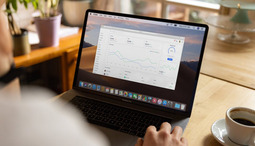- On
- 21 Sep 2023
- Reading time
- 5 minutes
In the age of the internet and social media, privacy can be an elusive concept. The more time we spend online, the less bothered we become by the idea that our data is out in the open, used and abused by who knows how many parties for their personal gain. We’ve come to accept the loss of privacy as a fair trade-off for enjoying all the perks and wonders of the internet.
But just because we care less about who sees our private information and have become desensitized to the threats that reside in today’s cyber landscape, doesn’t mean they don’t exist or that they’re less harmful. On the contrary, online risks and hazards are more prevalent and more dangerous than ever before.
So, having poor cyber hygiene and neglecting online privacy can put you at risk of security incidents such as scams, phishing, identity theft, malware and viruses, and potentially send you on a roller-coaster of data breach compensation claims that you could have easily avoided had you been more cautious.
The good news is you don’t have to renounce the internet altogether and remove all traces of yourself online to restore your privacy – unless you so wish, which is perfectly understandable given the social and psychological toll that spending more time online than in the real world can have on a person.
However, even if our whole existence seems to be connected to the digital world, there are ways to lessen our dependency and limit the private data that we share online voluntarily and accidentally, without completely severing our ties to the World Wide Web. These tips and strategies will teach you how to walk the middle ground and effectively reduce your digital footprint.
Get rid of unnecessary accounts
If you’ve been on the internet for a while, chances are you’ve already interacted with different businesses online and built a consistent collection of accounts you haven’t used since the age of the dinosaurs. While you may think there’s no harm in having a few accounts scattered across cyberspace, they provide one more window into your personal life and can be used by hackers to get hold of your data and gain access to other accounts that you currently use.
There’s no reason to keep an account active if you don’t use it and therefore brings no benefit to you, only potential risks. So, you might want to do a bit of spring cleaning from time to time and delete the accounts that are no longer of use to you. And while you’re at it, you might want to look into your social media accounts as well. Do you really need to be on every social media platform ever? We think you already know the answer to this question.
Don’t share more than you want the world to know
Speaking of social media, these days it feels like you don’t even exist if you don’t post regularly on your social pages, or so we are conditioned to believe. People have lived peacefully and contentedly long before social media arrived, so you don’t have to inform the world about every single thing you do just because this is deemed normal nowadays.
Besides, all this oversharing can backfire as malicious actors know how to extract pieces of information from even the most inconspicuous posts and use it to their advantage and to your detriment. Therefore, you need to think twice before you post something online or before sharing any kind of personal details with a website or an online entity. If a site asks you to provide more data than is usually required, take it as a red flag and leave the page immediately. The less you share, the safer you’ll be.
Manage your privacy settings
Privacy settings are there for a reason: to help you determine the amount of data you share with others and control how organisations that you engage with online handle your personal information.
It would be naïve and reckless to assume that online companies have your best interest at heart and wouldn’t do everything in their power to collect as much data from their users as possible. In the digital world, data is currency, so every piece of information holds value. If you want to enhance your online privacy, you need to look into each app and account you’re using, read the terms and conditions, and restrict permissions so you can have tighter control over your digital footprint.
Delete your info from data collection sites
Data collection sites do exactly what it says on the tin: they gather data that is publicly available on the internet, store it in data sets and then sell it to other companies for various marketing purposes such as research or targeted advertising.
If you’re not comfortable with third parties selling your data without your consent, you can search for your listings and opt out. This can be cumbersome if you search for these sites individually, but there are tools that can help you automate the process and make it much easier for you to delete your info.
Use incognito mode
Last but not least, you can enjoy a private browsing experience by simply using the incognito mode that all major search engines provide. This feature allows you to navigate the internet anonymously as it deletes cookies and search history when you close the browser and prevents online tracking.
There are a number of other tools and solutions like virtual private networks (VPNs) or adblockers that can help you improve your online privacy and restrict access to your personal information, so you might want to check them out and see what options suit you best.
Final thoughts
Staying private in the online space can be a real struggle, but there are ways to avoid excessive exposure and keep intruders at bay if you only do a bit of research and put some effort into it. It’s important to keep in mind that actions in the digital realm can have consequences in the real world, so it’s always best to be safe than sorry.








